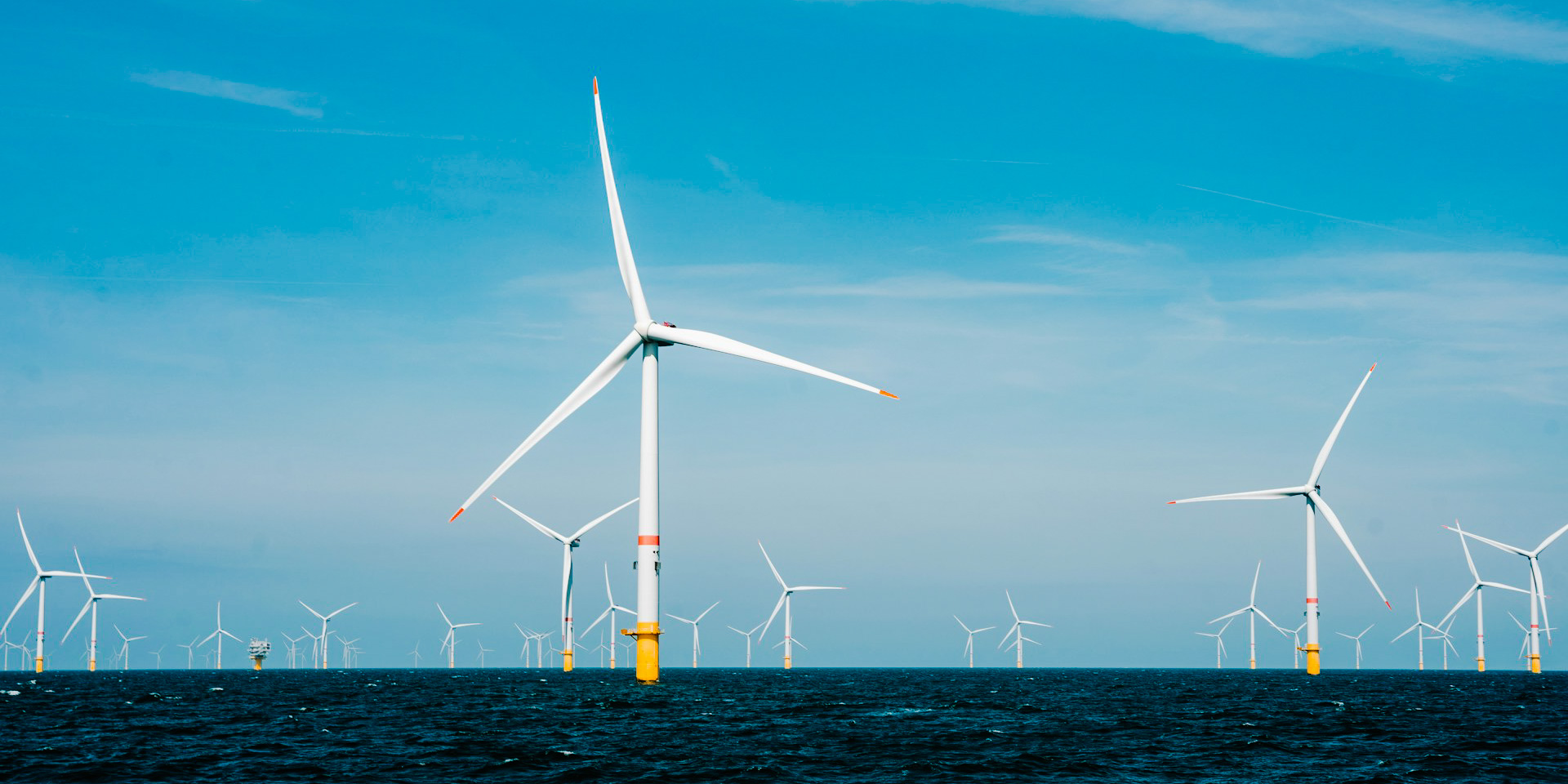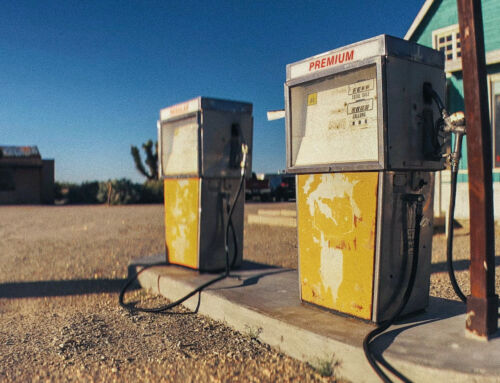View by Topic
Recent Articles
-
Congress Blocks California’s Gasoline Car BanSaturday, May 31st, 2025
-
EPA Will Keep Current Limits for “Forever Chemicals” in Drinking WaterSaturday, May 24th, 2025
-
Court Indefinitely Pauses SEC Climate Rule LitigationSaturday, May 17th, 2025
-
Maryland is About to Regulate Mold But is the Cart Before the HorseSaturday, May 10th, 2025
View by Month/Year
“Green Building Law Update” Headlines
Recent Articles & News from
Stuart Kaplow’s blog
at GreenBuildingLawUpdate.com
- EPA Will Keep Current Limits for “Forever Chemicals” in Drinking Water May 25, 2025
- Court Indefinitely Pauses SEC Climate Rule Litigation May 18, 2025
- Maryland is About to Regulate Mold: But is the Cart Before the Horse? May 11, 2025
- BEPS Redux: The Most Far Reaching Environmental Legislation of the 2025 Maryland General Assembly May 4, 2025
Subscribe to the Green Building Law Update!
Stuart Kaplow brings his expertise and extensive experience to the table with his unique digital publication, "Green Building Law Update". Subscribers receive regular updates to keep them informed about important issues surrounding Environmental Law, Green Building & Real Estate Law, as well as the emerging demand for Environmental Social Governance (ESG).
Get fresh content through the lense of Stuart Kaplow's cutting-edge expertise, innovative commentary and insider perspective. Don't miss another issue! Subscribe below.

Ocean City and Others File Lawsuit to Reverse Offshore Wind Approval
A significant lawsuit was filed last week asking the Federal Court for an order “holding unlawful, vacating, and setting aside [the] September 4, 2024 decision approving the Construction and Operations Plan for the Maryland Offshore Wind Project,” the first phase of which would have permitted 114 offshore wind turbines 10.7 miles off the coast of Ocean City, Maryland and Fenwick Island, Delaware.
A Contested Project Facing Legal and Financial Hurdles
However, even before this litigation, it was not clear that this public and ratepayer subsidized offshore wind project was going to be erected anytime soon, if ever, despite being thrown a life preserver by the Maryland legislature earlier this year including ordering the Maryland Public Service Commission to renegotiate project schedules, sizes, and pricing, something not expected to be completed until next year.
The Town of Ocean City, Town of Fenwick Island, Worcester County, Coastal Association of Realtors of Maryland, Save Right Whales Association, Waterman’s Association of Worcester County, White Marlin Open, Inc., and more than a dozen other plaintiffs including prominent hotels and popular retailers sued the Biden Administration’s Department of the Interior, its Bureau of Ocean Energy Management and its officials.
The Complaint begins with the Biden Administration announcement of its goal of deploying 30 gigawatts of offshore wind energy projects by 2030, through a set of bold actions that will catalyze offshore wind energy “on the Outer Continental Shelf as fast as possible, sacrificing a transparent approval process, the purpose of notice and comment rulemaking and shortcutting the statutory and regulatory requirements ..”
On September 4, 2024, the Bureau of Ocean Energy Management approved the Construction and Operations Plan for the Maryland Offshore Wind Project, an 80,000 acre ocean wind project of 114 wind turbines to be constructed by US Wind Inc. in leased federal waters on the Outer Continental Shelf.
That swiftly granted final agency approval, together with BOEM’s approval of a final Environmental Impact Statement for the project, which we blogged about this past June, and a collection of various other permits from other federal agencies provide US Wind with the authorization to commence construction of the Maryland Offshore Wind Project.
Maryland Consumes 40% More Electricity Than It Produces
But construction was not going to begin any time soon, even before this lawsuit because as we noted in our earlier blog post, when one of the two successful bidders withdrew because together with most other offshore wind projects Maryland’s were not financially feasible, despite an estimated more than $4 Billion in subsidies, earlier this year the law was changed in Maryland to allow a new process lifting the existing cap on public and ratepayer subsidies. The Maryland Public Service Commission is reviewing an updated proposal from US Wind and no determination is expected this year.
To appreciate the stated reliance on offshore wind for future renewable energy, today, Maryland consumes about 40% more electricity than it produces, so the US Wind target of 2 gigawatts of renewable electricity, enough to power more than 500,000 homes could be key. We recently blogged that Maryland needs to produce more electricity.
The Complaint in this lawsuit alleges that in its swift and “bold action” not only to respond to global warming but also to create “good paying union jobs” (mentioned five times in the first five sentences of the Biden Administration fact sheet), BOEM failed to comply with numerous statutes and their implementing regulations, including the Administrative Procedure Act, National Environmental Policy Act, Endangered Species Act, Marine Mammal Protection Act, Migratory Bird Treaty Act, Coastal Zone Management Act, and National Historic Preservation Act.
The Impact on Ocean City’s Economy and Environment
The more than 90 page Complaint describes in vivid detail what is at risk: “The Town of Ocean City is Maryland’s only beachfront city and each year, millions of tourists come to Ocean City and spend billions of dollars in Ocean City, visit the free and public beaches, enjoy the pristine open ocean view, observe whales and marine life, stay in hotels or rental properties, enjoy the boardwalk and shops, and experience the City’s festivals, celebrations, and more than 20 fishing tournaments. As a major resort town, tourism is Ocean City’s primary economic driver, with tourism generating $2.1 billion and supporting more than 13,000 jobs. Ocean City’s Boardwalk is more than 130 years old and has been named one of the best classic wooden boardwalks in the United States.”
Environmental and Wildlife Concerns in the Forefront
The initial pleading, drafted by Marzulla Law, the attorneys who also represent the plaintiffs in the appeal of permits for Nantucket Vineyard Wind, the country’s first commercial scale offshore wind project, details the flaws in the BOEM review and approval:
The lawsuit claims there was a violation of the National Environmental Policy Act and the Administrative Procedure Act when BOEM violated NEPA by impermissibly segmenting analysis of the multiple areas of the offshore wind program and ignoring the cumulative environmental impacts of thousands of turbines on millions of acres of ocean that BOEM will approve in the near future.
Importantly the Complaint says BOEM failed to conduct a true alternatives analysis as NEPA requires, impermissibly limiting its review of available alternatives.
It is alleged BOEM failed to disclose and fully analyze the three phases of the project. And that BOEM failed to analyze less environmentally damaging alternatives.
The plaintiffs here argue that BOEM failed to reasonably take into account impacts on tourism and local economies when it admitted those impacts will be “moderate adverse.” Also damning is the allegation that BOEM failed to analyze the impacts on historic properties in Ocean City and Fenwick Island in violation of the National Historic Preservation Act.
In a fascinating line of attack, the plaintiffs aver that BOEM failed to adequately analyze climate change effects of constructing and operating the wind turbines. Relatedly, it is claimed that BOEM failed to analyze the impacts of blade and turbine failure and the degradation of project components.
Significantly the government released writings do not reveal anything to the contrary of the allegation in the Complaint that BOEM failed to analyze the project’s impact on the Atlantic Horseshoe Crab, a vulnerable species. And there are other deficiencies alleged in the failure to adequately study other environmental impacts.
In an apparent violation of the Endangered Species Act, these wind turbines put the fewer than 70 remaining reproductively active female North Atlantic Right Whales in grave jeopardy. In point of fact, the BOEM documents made public admit that the turbines threaten the North Atlantic Right Whale. However, the publicly released biological opinion excludes critical information about the adverse effects of other offshore wind projects directly in the migration path of the North Atlantic Right Whales. As such, the described mitigation measures are inadequate and fail to ensure that the endangered species will be protected.
More than just a hyper technical omission, the Complaint alleges that the decision fails to incorporate all of the requirements from the incidental take statement in violation of the Endangered Species Act. Additionally in violation of the Marine Mammal Protection Act, the government has authorized the take of more than a small number of marine mammals, which will have more than a negligible effect on the approximately 370 remaining individual North Atlantic Right Whales.
Moreover, the Complaint details alleged Migratory Bird Treaty Act and Administrative Procedure Act violations.
Seeking Federal Court Intervention
The plaintiffs are asking the Court for an order holding unlawful, vacating, and setting aside the September 4, 2024, decision approving the Construction and Operations Plan for the Maryland Offshore Wind Project, including the earlier issued June 18, 2024, biological opinion, and October 23, 2024, incidental take findings.
The Biden Administration’s self described bold actions to create good union jobs and catalyze offshore wind energy are alleged to have shortcut statutory and regulatory requirements. Whatever the judicial outcome, it has been a long time since US Wind entered into its power purchase agreement with the State of Maryland in 2017. Many suggest it will be an even longer time before offshore wind provides any power to households in the State and if there is a second Trump Administration, never.









